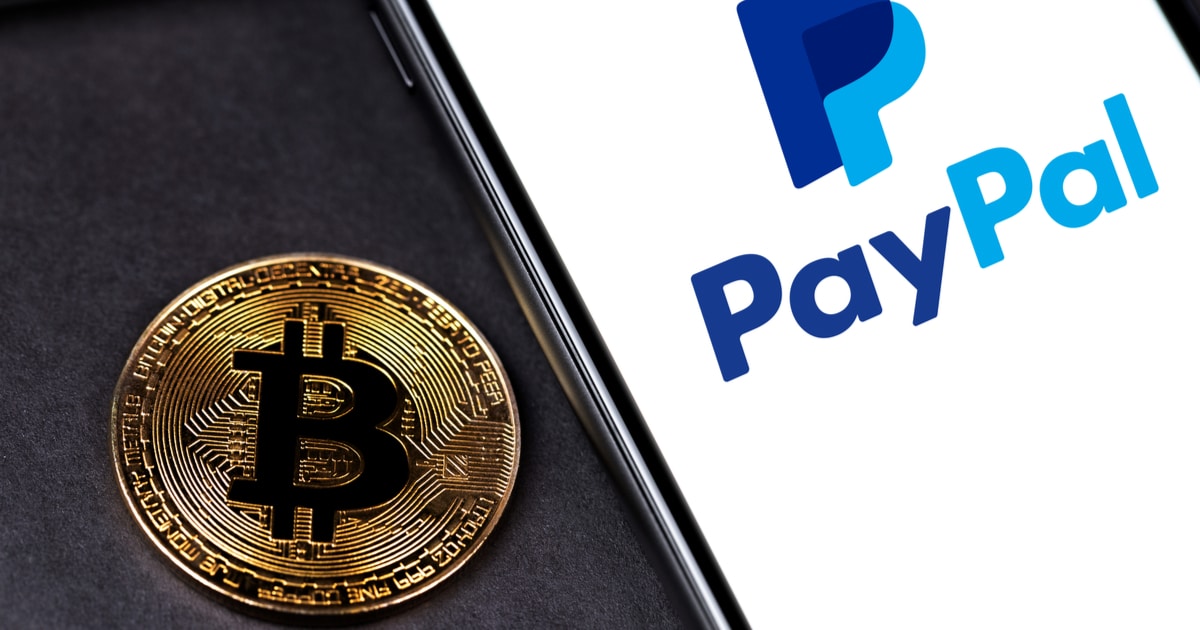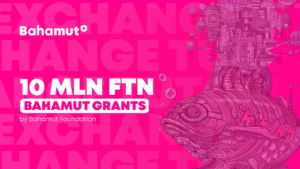
On August 7, 2023, PayPal (NASDAQ: PYPL) announced the launch of a U.S. dollar-denominated stablecoin, PayPal USD (PYUSD), aimed at transforming payments in web3 and digitally native environments. The announcement was made in San Jose, California, and marks a significant step in bridging the gap between fiat and digital currencies.
PayPal USD: Features and Functionality
PayPal USD is designed to contribute to the opportunities that stablecoins offer for payments. It is 100% backed by U.S. dollar deposits, short-term U.S Treasuries, and similar cash equivalents. The stablecoin is redeemable 1:1 for U.S. dollars and is issued by Paxos Trust Company.
Starting from the announcement date and rolling out in the coming weeks, eligible U.S. PayPal customers who purchase PayPal USD will be able to:
Transfer: PayPal USD between PayPal and compatible external wallets.
Send: person-to-person payments using PYUSD.
Fund purchases: with PayPal USD by selecting it at checkout.
Convert: any of PayPal's supported cryptocurrencies to and from PayPal USD.
PayPal's CEO, Dan Schulman, emphasized the need for a stable instrument that is digitally native and easily connected to fiat currency like the U.S. dollar, stating, "Our commitment to responsible innovation and compliance, and our track record delivering new experiences to our customers, provides the foundation necessary to contribute to the growth of digital payments through PayPal USD."
Profit of Stablecoin
Stablecoins have proven to be quite profitable, and PayPal's entry into this market is indicative of its potential. According to Tether, the issuer of USDT, its operational profits for April to June 2023 are over $1 billion, marking a 30% increase quarter over quarter.
As a traditional payment giant, PayPal can hardly ignore the huge market of stablecoin, and its launch of PayPal USD reflects a strategic move to capitalize on this growing and lucrative sector.
Building Bridges: Fiat and Web3
PayPal USD will be available to consumers, merchants, and developers to seamlessly connect fiat and digital currencies. As an ERC-20 token issued on the Ethereum blockchain, PayPal USD will be accessible to a large and growing community of external developers, wallets, web3 applications, and exchanges.
The stablecoin is designed to reduce friction for payments in virtual environments, facilitate fast transfers of value, enable direct flows to developers and creators, and foster continued expansion into digital assets by major brands. It will be compatible with the web3-specific ecosystem from day one and will soon be available on Venmo.
Transparency and Regulation
PayPal USD is issued by Paxos Trust Company, a fully licensed entity subject to regulatory oversight by the New York State Department of Financial Services. In June 2022, PayPal was issued a BitLicense by NYDFS.
Reserves for PayPal USD are fully backed by U.S. dollar deposits, U.S. Treasuries, and similar cash equivalents. Beginning in September 2023, Paxos will publish a public monthly Reserve Report for PayPal USD, outlining the instruments composing the reserves. A third-party attestation of the value of PayPal USD reserve assets will also be issued by an independent accounting firm, conducted in accordance with standards established by the American Institute of Certified Public Accountants (AICPA).
Conclusion
PayPal's launch of its U.S. dollar stablecoin marks a significant milestone in the integration of traditional finance with the emerging digital economy. By providing a transparent, redeemable, and regulated stablecoin, PayPal is positioning itself at the forefront of the digital payment revolution, leveraging its decades-long experience in payments to bridge the gap between fiat and web3. The introduction of PayPal USD reflects the growing trend of financial institutions embracing blockchain technology and digital assets, offering new possibilities for consumers, merchants, and developers alike.
Image source: Shutterstock
- SEO Powered Content & PR Distribution. Get Amplified Today.
- PlatoData.Network Vertical Generative Ai. Empower Yourself. Access Here.
- PlatoAiStream. Web3 Intelligence. Knowledge Amplified. Access Here.
- PlatoESG. Automotive / EVs, Carbon, CleanTech, Energy, Environment, Solar, Waste Management. Access Here.
- BlockOffsets. Modernizing Environmental Offset Ownership. Access Here.
- Source: https://Blockchain.News/news/breaking-paypal-launches-stablecoin-pyusd
- :is
- $1 billion
- 1
- 2022
- 2023
- 7
- a
- Able
- accessible
- accordance
- According
- Accounting
- aimed
- alike
- also
- American
- an
- and
- Announcement
- any
- applications
- April
- ARE
- AS
- asset
- Assets
- At
- AUGUST
- available
- backed
- BE
- Beginning
- between
- Billion
- BitLicense
- blockchain
- blockchain technology
- brands
- Breaking
- BRIDGE
- bridges
- bridging
- British
- British Pound
- built
- by
- california
- CAN
- capitalize
- Cash
- cash equivalents
- ceo
- Certified
- Checkout
- Coin
- coming
- coming weeks
- commitment
- community
- company
- compatible
- compliance
- conducted
- Connect
- connected
- Consumers
- continued
- contribute
- creators
- cryptocurrencies
- currencies
- Customers
- Dan Schulman
- Date
- day
- delivering
- Department
- deposits
- designed
- developers
- different
- digital
- Digital Assets
- digital currencies
- Digital economy
- Digital Payment
- Digital Payments
- digitally
- direct
- Dollar
- Dollar denominated
- dollars
- easily
- economy
- ecosystem
- eligible
- embracing
- emerging
- emphasized
- enable
- entity
- entry
- environments
- equivalents
- ERC-20
- established
- ethereum
- Ethereum blockchain
- Euro
- examples
- Exchanges
- existing
- expansion
- experience
- Experiences
- external
- facilitate
- FAST
- Features
- Fiat
- finance
- financial
- Financial institutions
- financial services
- Firm
- Flows
- For
- For Consumers
- forefront
- Foster
- Foundation
- friction
- from
- fully
- gap
- giant
- Growing
- Growth
- Have
- HTTPS
- huge
- in
- include
- Increase
- independent
- indicative
- Innovation
- Institute
- institutions
- instrument
- instruments
- integration
- into
- Introduction
- Issued
- Issuer
- IT
- ITS
- itself
- jpg
- june
- jurisdictions
- large
- launch
- launches
- leveraging
- Licensed
- like
- lucrative
- made
- major
- Market
- marking
- Merchants
- milestone
- monthly
- move
- Nasdaq
- native
- necessary
- Need
- net
- New
- New York
- New York state
- New York State Department of Financial Services
- NYDFS
- of
- offer
- offering
- on
- ONE
- operational
- opportunities
- our
- out
- over
- Oversight
- Paxos
- payment
- payments
- PayPal
- plato
- Plato Data Intelligence
- PlatoData
- positioning
- possibilities
- potential
- pound
- profitable
- profits
- proven
- provides
- providing
- public
- publish
- purchase
- purchases
- PYPL
- Quarter
- record
- redeemable
- reduce
- reflects
- regions
- regulated
- regulatory
- report
- represents
- Reserve
- reserves
- responsible
- Revolution
- Rolling
- s
- San
- San Jose
- seamlessly
- sector
- selecting
- September
- Services
- short-term
- significant
- similar
- Soon
- Source
- stable
- stablecoin
- Stablecoins
- standards
- State
- State Department
- stating
- Step
- Strategic
- subject
- Supported
- Technology
- that
- The
- third-party
- this
- Through
- to
- token
- track
- traditional
- traditional finance
- transfers
- transforming
- transparent
- Treasuries
- Trend
- Trust
- u.s.
- u.s. dollar
- U.S. Dollars
- U.S. Treasuries
- us
- US Dollar
- USD
- USDT
- using
- value
- various
- Venmo
- Virtual
- Wallets
- was
- Web3
- web3 applications
- Weeks
- WHO
- will
- with
- york
- zephyrnet












